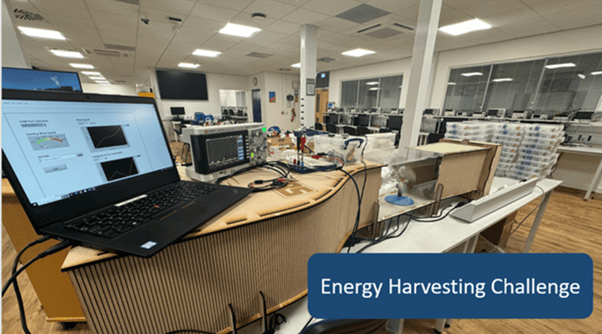Published on: 16/09/2024 · Last updated on: 23/09/2024
Introduction
The Department of Electronic and Electrical Engineering (EEE) has used University of Bath’s recent Curriculum Transformation process as an opportunity to embed climate and sustainability skills throughout its BEng and MEng degree courses. This redesign was driven by a desire to ensure that students were equipped with up-to-date and relevant skills, as well as being responsive to the University’s Climate Action Framework and the inclusion of sustainability as a requirement for course accreditation by the Institute of Engineering and Technology. EEE students receive dedicated lectures on sustainability within their core curriculum, which now prioritises skills related to climate literacy, e-waste, electronic-enhanced sustainability and life cycle. Students also gain a practical awareness of the UN’s Sustainable Development Goals. This redesign has been spearheaded by Dr Melusine Pigeon, a lecturer in the Department and one of the University’s Climate Advocates.
E-portfolios facilitate teaching and assessment of climate and sustainability skills
E-portfolio units (Year 1 20 credits, Year 2 30 credits) provide the primary context in which climate and sustainability skills are taught and assessed within the transformed EEE courses. The e-portfolio is a digital portfolio which is built in Mahara. Throughout the year, students build a testimony of what they have accomplished during laboratories and project week. Using a skill requirement framework, the students claim skills related to the work they have completed. Sustainability skills are given equal weighting alongside technical and transferable skills within the Mahara portfolio. The EEE curriculum now includes a greater number of explicit references to sustainability and the societal role of engineers in responding to the climate emergency. The assessment structure of these skill-based units draws on Bloom’s Taxonomy, supporting students to progress from knowledge acquisition, to application, to synthesis (this final stage requiring them to select and deploy appropriate skills autonomously in a context-specific way). These practically orientated units provide students with the technical, transferable and sustainability skills that prepare them for project-based modules in later years of study and for the workplace.
Project Weeks provide an experiential context for skills development
Within the E-portfolio units, Project Weeks provide an applied and experiential context in which students can develop climate and sustainability skills. These weeks group together students to work on topics that include weather forecasting devices, or an energy harvesting challenge where students assemble a wind turbine to collect as much electrical energy as possible. The small wind turbine is tested in one of the Department’s small wind tunnels. The value of Project Weeks is to apply climate and sustainability skills directly to real-life problems. Climate and sustainability topics can sometimes be seen as abstract or distant. Encouraging students to apply climate and sustainability in their work pushes them to consider these issues in relation to their area of study and demonstrates to them that they can themselves effect change, even on a small scale. Data from an internal University of Bath survey indicates a marked improvement in EEE student’s perceptions of the availability of climate and sustainability education in their curriculum after the implementation of the course-wide redesign. Qualitative student feedback highlighted that ‘project weeks are a great way to consolidate what we have learnt in lectures’.
Find out more
Do you want to know more about embedding climate and sustainability skills in your teaching? Find guidance and resources for embedding sustainability in the curriculum on the Teaching Hub, or learn more about Climate Action Education at Bath.
